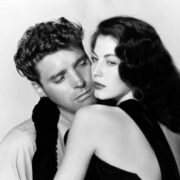Who is Harlene Rosen?
Most people know Harlene Rosen as Woody Allen’s first wife, but there’s so much more to her story. This fascinating woman lived through decades of public attention, personal struggles, and eventually found her way to forgiveness. Born in the late 1930s, Harlene Susan Rosen built her own life despite being constantly linked to one of America’s most famous filmmakers.
What makes Harlene’s story compelling isn’t just her connection to Allen. It’s how she handled fame, dealt with public humiliation, and ultimately chose her own path. While Allen became a household name, Harlene deliberately stayed out of the spotlight, making decisions that showed incredible strength and wisdom.
Early Life and Musical Talents
Harlene Rosen came into the world around 1939, during a time when women didn’t have many chances to express themselves creatively. But music was different for her. She fell in love with the piano early on and got really good at it. This talent would change her life in ways she never expected.
In the mid-1950s, Harlene started playing piano in Woody Allen’s jazz band. It wasn’t just about the music though. These two creative young people connected on a deeper level during a time when American entertainment was changing rapidly. Her musical skills gave their relationship something special that went beyond typical teenage romance.
A Teenage Romance That Changed Everything
Everything shifted in 1955 when nineteen-year-old Woody Allen asked sixteen-year-old Harlene to marry him. They tied the knot on March 15, 1956, two kids barely out of high school taking on adult responsibilities. Allen was just starting to make a name for himself in comedy, while Harlene was still figuring out who she wanted to become.
Their marriage meant more than just young love. They were both chasing dreams and supporting each other through tough times. They kept going to school while living in New York City, helping each other with their goals and learning about life together. Allen later said the marriage helped him get away from his parents and really start his life in the city.
The Struggles of a Young Marriage
Things got rocky pretty quickly. Allen admitted he had a terrible attitude toward Harlene during their first year together, and they fought constantly. His career was starting to take off, but they were both so young and inexperienced that everything felt overwhelming.
People who knew them said they never really had that happy newlywed phase. Jack Victor, a psychologist who stayed in touch with Allen, could tell from his letters that both of them realized they’d made a mistake. Money was tight, Allen’s career was uncertain, and they were both still growing up.
The problems got worse as Allen’s comedy career picked up steam. He was focused on making it professionally, while Harlene was trying to finish college. They were at different stages of life, and it showed.
When Comedy Became Cruelty
As Allen’s stand-up career took off, he started using his personal life as material for his jokes. At first, it was just general stuff about marriage, but then it got more personal and hurtful. He began making fun of his “generic wife” in nightclubs and on TV, turning their private problems into entertainment for strangers.
The worst part came when Allen started calling his wife “Quasimodo” during his performances. This nasty nickname, borrowed from Victor Hugo’s famous character, became a regular part of his act. For Harlene, watching her husband mock her in front of audiences was devastating.
It wasn’t just embarrassing – it was a complete violation of her privacy. Allen made jokes about their sex life and her family, turning Harlene’s most personal experiences into punchlines. This public humiliation damaged their relationship beyond repair and made her deeply suspicious of anyone in the public eye.
The Divorce and Legal Battle
By 1959, they’d had enough and separated after about three years of marriage. The divorce wasn’t final until November 1962. The court ordered Allen to pay seventy-five dollars a week in alimony, which could go up to one hundred seventy-five dollars if he got a steady job. At the time, Allen was only making twenty-five dollars a week, but that was about to change dramatically.
The timing was brutal for Harlene. By the end of their marriage, Allen was earning around fifteen hundred dollars weekly. By the late 1960s, he was pulling in about two hundred fifty thousand dollars a year. She was walking away just as he was about to hit it big, which some people said gave her “a raw deal.”
In 1967, Harlene did something unusual – she sued both Allen and NBC for defamation. She was specifically targeting his mean-spirited jokes about her on “The Tonight Show.” She actually won a temporary restraining order against him, and they settled the case in the early 1970s. It was rare for a regular person to successfully challenge a comedian’s right to mock their personal life.
Choosing Privacy Over Publicity
After the divorce, Harlene made a smart choice – she disappeared from public life. While Allen’s fame exploded with hit movies and constant media coverage, she built a quiet life away from all the Hollywood craziness. This decision showed real wisdom and strength, putting her peace of mind ahead of any chance for fame or money.
Her commitment to privacy became even more impressive as Allen’s career reached incredible heights with films like “Midnight in Paris” and “Blue Jasmine.” Instead of cashing in on her connection to his success, Harlene stuck to her quiet life. In an age of reality TV and celebrity culture, her restraint was remarkable.
For decades, she successfully avoided the media circus that usually follows the ex-wives of famous people. Her ability to stay private while Allen’s career soared showed incredible determination to define herself on her own terms.
Breaking the Silence – A Message of Forgiveness
In 2015, almost fifty years after their messy divorce, Harlene shocked everyone by speaking up. Just before Allen’s eightieth birthday, she sent a heartfelt message to biographer David Evanier for his book “Woody: The Biography.” It was her first public statement in over thirty years.
Her message was surprisingly gracious: “Wondrous Woody, you inspired me with your enormous energy, creativity and charisma. I loved going to movies with you. I loved making music with you… After our teenage summer of love, marriage was difficult. You established a career. I completed four years of college. We supported each other, learnt about life and became adults. There was sadness, tears, laughter and love.”
This public forgiveness showed how much both of them had grown over the decades. Instead of holding onto old grudges, Harlene chose to remember the good parts of their relationship and acknowledge how they’d helped each other during their formative years.
Legacy and Lessons
Harlene Rosen’s story teaches us things that go way beyond celebrity gossip. Her experience shows what young women faced in the 1950s and 1960s, especially those connected to rising stars. Her decision to choose dignity over publicity gives us a powerful example of staying true to yourself in difficult situations.
There’s no denying that she influenced Allen’s early comedy work. The material he got from their relationship helped him develop his unique style and voice. But her real legacy is showing us the power of resilience, forgiveness, and having the courage to choose privacy in our increasingly public world.
The lessons from Harlene’s journey still matter today when we talk about privacy, respect in relationships, and where to draw the line in public entertainment. Her story reminds us that behind every famous person’s success, there are often private individuals who contributed to that journey and deserve recognition for their own strength and character.
In the end, Harlene Rosen’s life is much more than just a footnote in Woody Allen’s story. She shows us the power of choosing dignity over revenge, privacy over publicity, and forgiveness over bitterness. In our age of constant media attention and public scrutiny, her example gives us a refreshing perspective on handling personal challenges with grace and integrity.
















